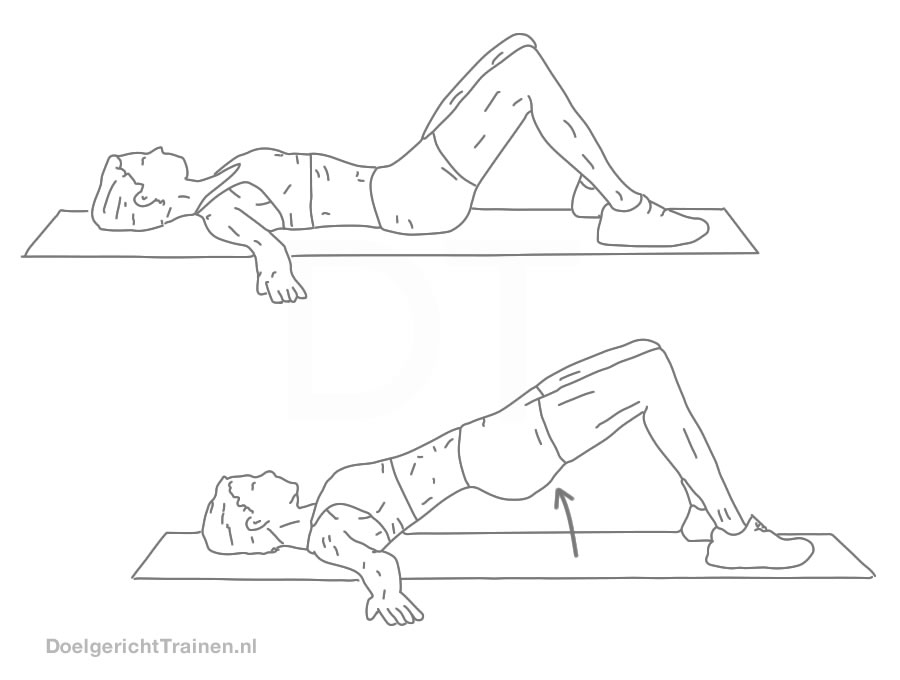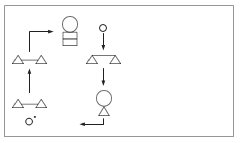Hockey drills
- Put two chairs 18,3 meter apart.
- Put a tennis ball on chair 1 (this will be replenished), and put a bowl on chair 2.
- The players work in pairs.
- One player runs and the other fills up the tennis balls.
- Collect in 9 minutes as many tennisballs as possible in the bin.
- You are not allowed to throw and you have to run around the chairs.
- The player sits with his back against the wall and his legs in a 90 degree angle.
- Keep this up for as long as possible.
- Jump as far as you can from a standing position with your feet next to each other.
- Measure the distance from the line of touch to the heel.
Bridge
Starting position
- Lie on your back.
- Bend your knees to 90 degrees and place both feet flat on the floor.
- Your arms are along your body with the palms facing down.
Action
- Tighten your buttocks and stomach.
- Lift your buttocks off the ground to form a straight line with your knees, hips and shoulders.
Difficulty
- To make this exercise more difficult: alternately extend your right and left leg, keeping your hips in position.

- 30 sec jumping jacks
- 30 sec sit ups
- 30se squats
- 30 sec push up and turn arm up
- 30 sec high knee running in place
- 30 sec lunges
- 30 sec plank
- knee lift
- heels against buttocks
- lateral steps both ways
- cross pass both sides
- ball retrieval
- 3 steps forward , backward and sprint
- 30 sec jumping jacks ( cfr army)
- 30 sec sit ups
- 30 sec squats
- 30 sec push-ups and arm twists
- 30 sezc high knee running in place
- 30 sec lunges
- Float along the outside of the square.
- Not only looking at the ball but also looking forward/around you.
- In the room are hoops.
- 2 teams play against each other.
- You can score a point by passing the ball 5 times and then putting the ball in a hoop.
- The other team can then take the ball.
- Push the ball to the right.
- play left
- slide
- lay down several hoops and per 3 players pass the ball 6 times at 1 hoop and then to the next hoop.
- Float the ball and after the hoop pass the ball to a teammate who does the same.

- With the different materials you can make nice courses.
- A course is a fun and fast way to get the children to repeat their skills.
- It is also possible to make courses with a certain theme.
- Possible themes are: drifting, slalom, passing, playing high, making tempo.
- The arrows and traffic signs can be used in all sorts of exercises in a course and in relays.
- Here are some examples of possible courses









